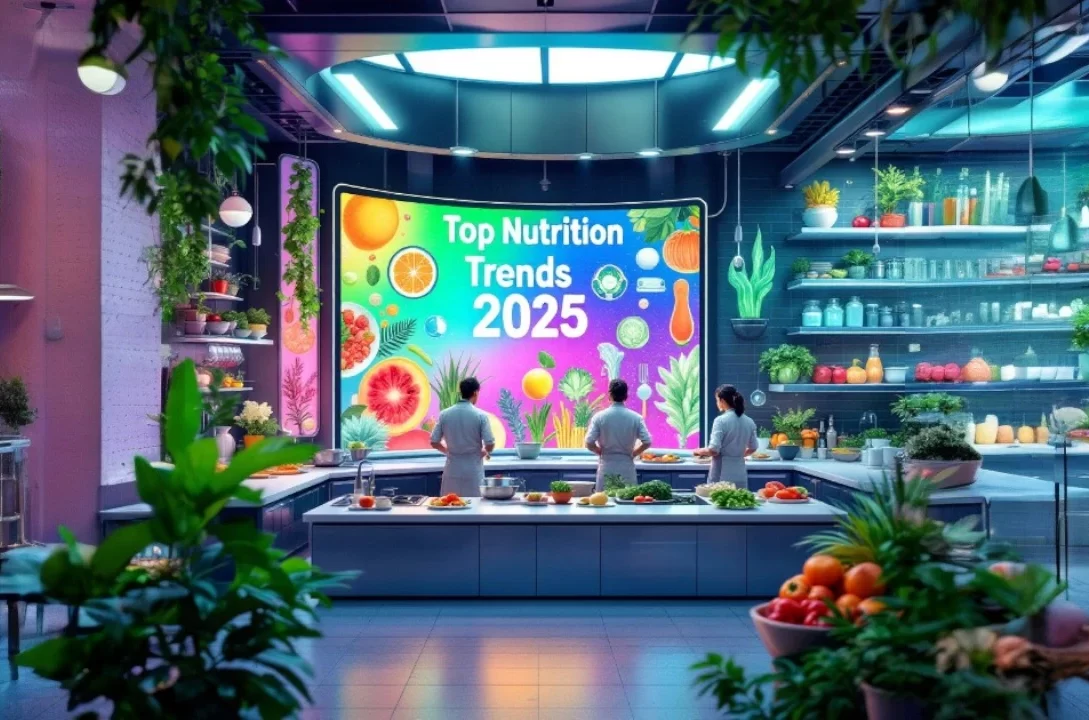The world of nutrition is evolving faster than ever. With new research, technology, and sustainability concerns shaping our food choices, 2025 promises groundbreaking shifts in how we eat.
Whether you’re a health enthusiast, fitness junkie, or just curious about smarter eating, these emerging nutrition trends will influence your plate. Let’s explore what’s coming—and how you can benefit.
The Rise of Personalized Nutrition
Why One-Size-Fits-All Diets Are Out
Gone are the days of generic meal plans. DNA testing, gut microbiome analysis, and AI-driven apps now tailor diets to your unique biology, lifestyle, and goals.
- Nutrigenomics – How your genes affect nutrient absorption.
- Continuous glucose monitors (CGMs) – Track real-time blood sugar responses.
- At-home microbiome tests – Optimize gut health for better digestion.
Companies like ZOE and Nutrigenomix lead this trend, proving that personalized nutrition works better than generic advice.
Plant-Based 2.0: Next-Level Vegan Eating
Beyond Basic Veggie Burgers
Plant-based diets are evolving with smarter proteins, fermented foods, and lab-grown alternatives:
- Precision fermentation – Creates animal-free dairy and egg proteins.
- Mycoprotein (fungi-based meat) – More sustainable than soy or pea protein.
- Algae and seaweed – Packed with omega-3s, iron, and B12.
Even flexitarians are embracing these innovations, making plant-based eating more accessible and nutritious.
Sustainable & Regenerative Eating
Eating for the Planet’s Health
Consumers now demand food that’s good for them AND the environment:
- Regenerative agriculture – Farms that rebuild soil health (vs. depleting it).
- Upcycled foods – Using “ugly” produce and food waste in snacks and meals.
- Insect protein – Crickets and mealworms as high-protein, low-impact foods.
Brands like Patagonia Provisions and Barnana prove sustainability doesn’t mean sacrificing taste.
Functional Foods & Adaptogens
Food as Medicine Takes Center Stage
Forget plain calories—2025’s superfoods heal while they nourish:
- Adaptogenic mushrooms (reishi, lion’s mane) – Boost brain function and stress resilience.
- Collagen-infused foods – Supports skin, joints, and gut health.
- Prebiotic and probiotic blends – Enhance digestion and immunity.
Even coffee and chocolate now come fortified with nootropics and antioxidants.
Low-Waste & Zero-Packaging Diets
The End of Plastic-Heavy Eating
Eco-conscious consumers are ditching single-use plastics with:
- Bulk-bin shopping – Bring your own containers.
- Edible packaging – Seaweed-based wrappers for snacks.
- Meal kits with compostable materials – No more plastic waste.
This trend saves money and reduces landfill contributions.
Tech-Driven Eating: AI & Smart Kitchen Gadgets
Your Kitchen Gets Smarter
From AI meal planners to nutrient-tracking fridges, tech is revolutionizing home cooking:
- AI-generated recipes – Customized for your dietary needs and preferences.
- Smart scales – Track macros and micronutrients in real time.
- 3D-printed food – Personalized shapes and textures for special diets.
Soon, your fridge might order groceries before you run out.
The Return of Ancient Grains & Forgotten Superfoods
Rediscovering Nutrient-Dense Heritage Foods
Modern wheat and rice are making way for ancient powerhouses:
- Fonio – A gluten-free West African grain rich in iron.
- Amaranth – Complete protein with all essential amino acids.
- Tigernuts – Not nuts, but fiber-packed tubers for gut health.
These foods offer more nutrients than processed staples.
FAQs
1. Will personalized nutrition replace dietitians?
No—dietitians will use these tools for better recommendations, but human expertise remains key.
2. Are lab-grown meats safe to eat?
Yes! They undergo strict FDA and USDA testing and eliminate antibiotic and environmental risks of farming.
3. How can I start eating sustainably?
Begin with small swaps:
- Choose local, seasonal produce.
- Reduce food waste (meal prep, use scraps).
- Support regenerative farms.
4. What’s the easiest functional food to try?
Turmeric lattes or mushroom coffee—simple, tasty, and packed with benefits.
5. Will AI meal planning really work for me?
It’s great for saving time and reducing decision fatigue, but always adjust based on your preferences.
Final Thoughts: How to Stay Ahead in 2025
Nutrition in 2025 is all about smarter, personalized, and planet-friendly choices. You don’t need to adopt every trend—just pick a few that align with your goals.
Start small:
- Try one new superfood this week.
- Experiment with a sustainable swap (like reusable produce bags).
- Explore a personalized nutrition app.
The future of eating is exciting, innovative, and health-forward—will you be part of it?
Want more food trends? Check out our guide on 2025 superfoods or get our free sustainable eating checklist.
(Internal links: Best Plant-Based Protein Sources, How to Improve Gut Health)
(External sources: WHO Nutrition Guidelines, Harvard Health on Functional Foods)
This data-backed guide reveals what’s next in nutrition—so you can eat smarter, live healthier, and future-proof your diet. Which trend will you try first? 🍏🚀















